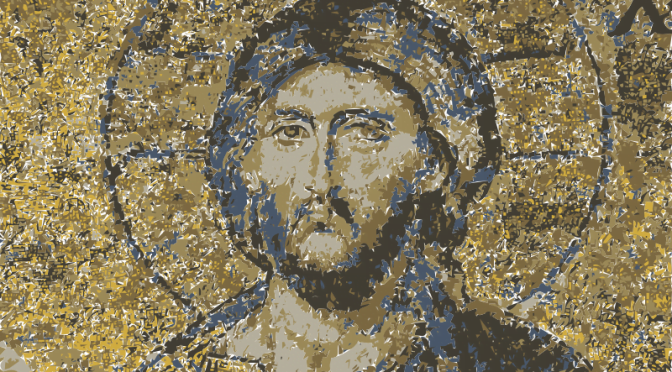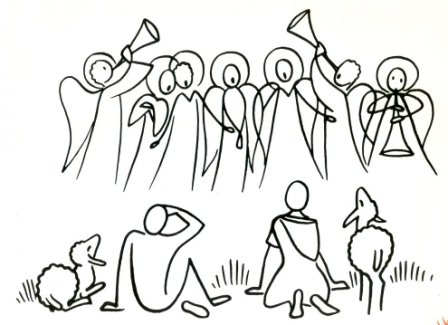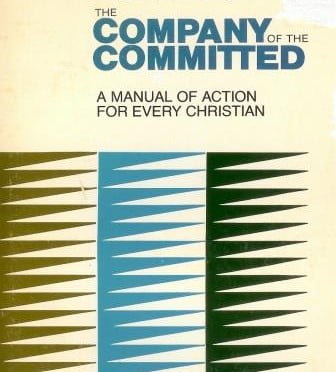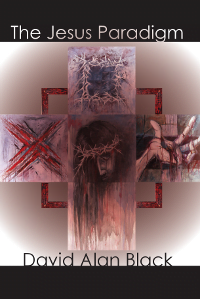8:14 AM Oh my. Here we go again. Gloom and doom. America is going down the tubes. Especially if you vote for the other guy, who is a despicable fraud.
Quick, Dave, check your insurance premiums!
Frankly, I’m not worried. Not one bit. It’s the same old ads. Just different names. It reminds me of an operating room. The surgeons and nurses are clothed immaculately and the instruments are sterilized. But they refuse to wash their hands. “All that matters is that you trust us. I am a surgeon. See my diploma? I don’t have to worry about keeping clean. Condition is of no importance.” The result? Pseudo-politics, pseudo-Christianity, pseudo-orthodoxy, and pseudo-piety. “For this reason God will send them strong delusion, and they will believe a lie” (2 Thess. 2:11). I’m not expert in eschatology, but it seems that Paul is talking about how God is preparing the world for Antichrist, the Big Lie, the final embodiment of all that is opposed to Christ. We are being primed for the final delusion, and as a result we accept cheap substitutes for the real thing. People believe the lie rather than love the truth.
I believe our Father would be pleased to give us much more if we had faith to ask for it.I’ve been rereading Elton Trueblood’s classic book, The Company of the Committed.

Trueblood was a lifelong Quaker, educator, and author. (He was also twice widowed.) His book is about Christian living, and the author wants to encourage a deep conversation about church and society. His main point is that the church as it exists today is ill-suited to fulfill its basic redemptive function since it has compromised itself in so many ways. “The movement we need is a movement in depth,” he writes (p. 10). This question is especially relevant in light of the fact that the line between the kingdom of God and the kingdoms of this world is becoming increasingly blurred in this election year of ours. While on the one had I have no problem with people being passionately involved in politics as they feel God is leading them, I simply maintain that politics should be kept strictly separate from what we are about as churches, and that no one should label their position as the distinctly “Christian” way of doing politics. Remember, in most wars in history, both sides firmly believed that their “God” was on their side. The unique call of the Christian is to pursue the kingdom, and this is accomplished in counter-cultural ways, including our willingness to sacrifice ourselves and even our very lives for others.
Trueblood gets this. He shows that many of the most “successful” programs in our churches will not bear up under close examination. “It is hard to exaggerate the degree to which the modern Church seems irrelevant to modern man” (p. 17). From my own experience, I can tell you this is very true in post-Christian Europe, where I have lived. To be a Christian in Switzerland was the equivalent of putting your brain in park or neutral. But not only does Europe suffer from this malaise. I live in the rural South, and here the church often has only marginal relevance. To be sure, people are willing to put up with it as long as it does not require anything of them. Hence, writes Trueblood, the question today is not one of whether Christian fellowships exist. Rather, the question is what kind of character these fellowships have (p. 21). I personally think this distinction is very helpful. The Gospel is not the true Gospel unless it is about transforming people, one life at a time. I deeply appreciate Trueblood’s attempt to call the church back to its militant stance, which produced “the amazing vitality of early Christianity’ (p. 28). On p. 31 he writes:
It is perfectly clear that early Christians considered Christ their Commander-in-Chief, that they were in a company of danger, which involved great demands upon their lives, and to be a Christian was to be engaged in Christ’s service.
The “service” he’s talking about is a far cry from the typical worship service or political rally one attends today. As in an army, every soldier has his or her own duty to perform.
The key words are “one another” [he writes on p. 32]. There are no mere observers or auditors; all are involved. Each is in the ministry; each needs the advice of the others; and each has something to say to the others. The picture of mutual admonition seems strange to modern man, but the strangeness is only a measure of our essential decline from something of amazing power.
Christ, says Trueblood, is organizing a genuine band of brothers, a company of the committed. Jesus wasn’t asking for people to go to church. “He was, instead, asking for recruits in a company of danger. He was asking not primarily for belief, but for commitment with consequent involvement” (p. 34). “We cannot understand the idea of of a company apart from the concept of involvement” (p. 38). The soldier’s one desire is to please their commander in everything.
The undeniable reality is that many of us today are both under-trained and uninvolved. The easiest way to undermine Christianity is to appoint someone else to do the work for us. During the American Civil War, if you had enough money you could purchase your way out of the draft and let someone else do the fighting for you. The simple fact is that we have been called — all of us — to follow Jesus Christ in acts of radical Calvary-love, not someone else’s good ideas or movements or strategies, however good we may think they are. Whether you are a Republican Matthew or a Democrat Simon the Zealot, we can all get along just fine as long as we follow Jesus and stop making our political ideals the bullseye.
The Company of Jesus is not people streaming to a shrine; and it is not people making up an audience for a speaker; it is laborers engaged in the harvesting task of reaching their perplexed and seeking brethren with something so vital that, if it is received, it will change their lives (p. 45).
This is the kind of lay ministry that I have long espoused and have argued for in my various publications. In the words of Trueblood, “…in the ministry of Christ there is neither Jew nor Greek, neither bond nor free, neither male nor female, neither layman nor cleric [italics his], but all are one in Christ” (p. 62). If you share this vision of the kingdom, will you support my work? Not financially of course. Will you join me in praying for the church in North America in 2016? Pray that God will help us wake up to the political delusion that has descended upon us through well-meaning people. Pray that we start caring more about sacrificing for the country than controlling it. To me, the most basic and most difficult challenge of being a Christ-follower is what Trueblood addresses in this marvelous book. It’s becoming completely sold out to the Commander-in-Chief and living under His authority and in His love on a moment-by-moment basis. I want to encourage us to cultivate a surrendered attitude toward God. By all means, let’s express our opinion about politics. Let’s vote for the person of our choice (or not vote at all if our conscience prohibits it). But let’s never, ever forget where the hope of the world lies. Let’s obey Jesus and love others as He did.
You want security? Love each other and the world well, and your house will stand.
(From Dave Black Online. Used by Permission.)















